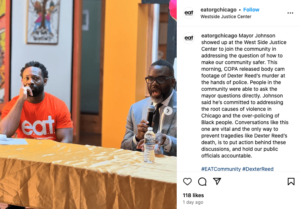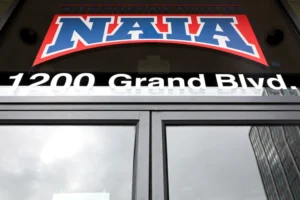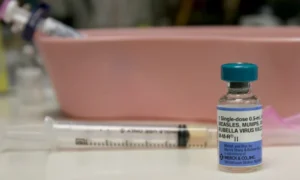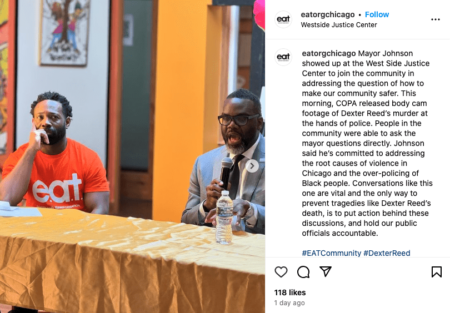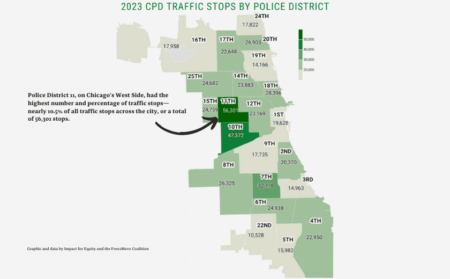Politically connected businessman James Weiss agreed to pay monthly bribes to two state legislators to benefit his venture into sweepstakes gaming machines, the largely unregulated kiosks that have mushroomed at gas stations and laundromats in the Chicago area, prosecutors told a federal jury Tuesday.
“In 2019, ladies and gentlemen, the defendant had two sitting politicians on his company’s payroll,” Assistant U.S. Attorney Christine O’Neill said in her opening statement in Weiss’ long-awaited bribery trial. “It was all to benefit his business … the sweepstakes machines and his own bottom line.”
Weiss’ attorney, Sheldon Sorosky, called it “1,000% false” that Weiss ever tried to bribe anybody, saying he agreed to pay then-state Rep. Luis Arroyo as a legitimate consultant.
It was Arroyo’s colleague in the General Assembly, state Sen. Terry Link, who was secretly cooperating with the FBI in the hopes of a break on his tax evasion case, who introduced the idea of a bribe during a private discussion with Arroyo, Sorosky said in his opening remarks to the jury.
“There isn’t any dispute concerning the payments that the government says Weiss paid,” Sorosky said. “We are saying those were not bribes, and those were not payments to deprive the people of the state of Illinois of the honest services of certain legislators.”
Weiss, 44, who is married to former state Rep. Toni Berrios, the daughter of former Cook County Democratic boss Joseph Berrios, is charged in a superseding indictment filed in October 2020 with bribery, wire fraud, mail fraud and lying to the FBI. He has pleaded not guilty.
The jury of eight women and four men was empaneled at the Dirksen U.S. Courthouse Tuesday afternoon after more than a day of questioning in U.S. District Judge Steven Seeger’s courtroom. The trial is expected to last about a week.
Prosecutors are scheduled to begin presenting witnesses Wednesday, including current state Rep. Robert Rita, (D-Blue Island) and former state Rep. Tony Munoz, a Chicago Democrat.
Link, who resigned from office before pleading guilty to unrelated tax evasion charges, could take the witness stand in the afternoon.
It’s a trial filled with political intrigue, both in the lineup of current and former elected officials expected to testify as well as the backdrop of ongoing federal investigations swirling around Weiss’ associates, including the Cook County assessor’s office that Joseph Berrios once helmed.
One name not on the witness list is Arroyo, who pleaded guilty to his role in the alleged scheme but did not agree to cooperate with prosecutors. Seeger sentenced Arroyo to nearly five years in prison last year, calling him a “corruption superspreader.”
The case centers on the largely uncharted world of sweepstakes machines, sometimes called “gray machines,” which allow customers to put in money, receive a coupon to redeem for merchandise online and then play electronic games like slot machines.
Since the machines can be played for free, they are not considered gambling devices. Critics, however, contend the unregulated devices, which operate in cities, including Chicago, that have banned video gambling, are designed to skirt the law.
The indictment alleges Weiss paid bribes to Arroyo beginning in November 2018 in exchange for Arroyo’s promotion of legislation beneficial to Weiss’ company, Collage LLC, which specialized in the sweepstakes machines. The bribes were paid via off-the-books lobbying payments to Arroyo’s consulting firm, Spartacus 3 LLC, according to the charges.
In her opening statement, O’Neill said that Weiss desperately wanted the state’s massive gambling expansion bill to include language explicitly legalizing sweepstakes machines, but it was left out of the proposal in the 2019 spring session.
“Instead of giving up, the defendant doubled down,” she said.
That August, Arroyo arranged a meeting between Weiss and Link, who was the chief sponsor of the gambling legislation, at Wendy’s restaurant in Highland Park to discuss introducing a sweepstakes bill in the fall veto session, O’Neill said.
“This was no ordinary or legitimate business meeting,” O’Neill said. What Weiss and Arroyo did not know was that Link was cooperating with the FBI and secretly recorded the meeting, she said.
During the meeting, Arroyo said he was going to introduce a “trailer bill” in the veto session expanding the use of sweepstakes games and offered to make periodic payments to Link in exchange for his support, according to the charges.
“I would like for you to carry the bill,” Arroyo allegedly told Link. “I don’t have nobody in the Senate.”
Three weeks later, Link was again wearing an FBI wire when Arroyo allegedly delivered the first of the promised $2,500 checks at a pancake house in Skokie, O’Neill said. Arroyo and Weiss had driven to the meeting together, but Weiss stayed in the car.
“This is, this is the jackpot,” Arroyo allegedly told Link as he handed over the check. Additional monthly $2,500 payments were expected to be made over the next six to 12 months, federal authorities alleged.
O’Neill said that at the direction of the FBI, Link had them make the check out to a purported associate named “Katherine Hunter,” who didn’t actually exist.
Afternoon Briefing
Daily
Chicago Tribune editors’ top story picks, delivered to your inbox each afternoon.
When Weiss was later questioned by agents, he lied and said Hunter was a a lobbyist who lived in Winnetka and that he’d spoken to her on the phone, O’Neill said.
Sorosky, however, said Weiss did not intentionally lie to any federal official. Instead, during a “surprise” interview, he “did his best to cooperate with the FBI agent and tell the FBI agent the truth as best as he knew it,” Sorosky said.
Sorosky said Weiss first hired Arroyo as a consultant to help fight a proposal by then-Ald. Patrick O’Connor to ban sweepstakes machines in Chicago. “That’s perfectly legal,” he said. “That’s not a crime.”
As far as the alleged scheme involving Link, Sorosky said Weiss had no knowledge of it, noting that the two legislators had excused themselves for a private conversation at the pancake house when the bribe was discussed on tape.
It was Link himself who introduced the bribe when, under the direction of the FBI, he asked Arroyo, “what’s in it for me,” Sorosky said.
“Jim Weiss didn’t come to this meeting to bribe Sen. Link,” Sorosky said. “He came to this meeting to try to save his business.”
jmeisner@chicagotribue.com
